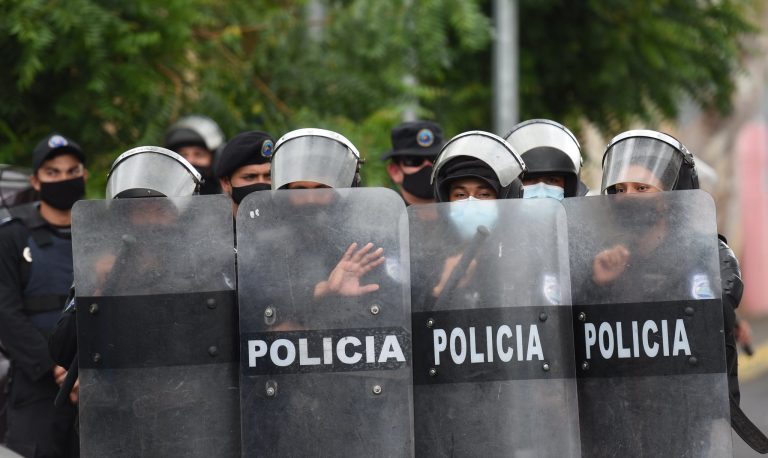14 de junio 2021

Children of Exile: The Births “Sowing Hope” in the Camp of Nicaraguan Farmers

PUBLICIDAD 1M
PUBLICIDAD 4D
PUBLICIDAD 5D
Joe Biden’s advisor warns that the U.S. is "discussing" how to take joint actions with European and Latin American countries

Photo: Nayira Valenzuela
Juan Sebastián González, advisor for Latin American issues at the U.S. National Security Council, said that Joe Biden's government "will respond" to the situation of Nicaragua, in reference to the house arrest against aspiring presidential candidate Cristiana Chamorro Barrios.
"We are definitely looking at which actions are going to be taken to respond, not just unilaterally. As this Administration has said: to have greater effect we have to work multilaterally," the advisor commented. "We are having conversations with governments in Europe and Latin America who share that concern," he added.
The Renacer Act initiative, which was introduced in the U.S. Congress last April, proposed the Joe Biden Administration to make "diplomatic demarches" with the governments of Canada, the European Union (EU) and Latin American and Caribbean countries” to impose targeted sanctions" against citizens who obstruct the Nicaraguan elections.
Since mid-2018, the United States has sanctioned at least 27 citizens related to the Ortega-Murillo regime, including senior officials, deputies and members of the presidential family. Added to the list are nine public institutions or mixed entities, including the National Police.
Between 2019 and 2020, Canada, the European Union and Switzerland followed in the footsteps of the United States and sanctioned some officials of the regime, accused of corruption and human rights violations.
On June 4, about thirty members of the European Parliament (MEPs) — conservatives, liberals and extreme right-wing politicians of various nationalities — asked the EU High Representative for Foreign Policy, Josep Borrell, to apply the "democratic clause" to Nicaragua, which is part of the association agreement with Central American countries regarding human rights violations.
Through this clause, the Central American countries committed themselves to respect fundamental human rights and the rule of law, and in case of non-compliance, could ultimately cease to enjoy the benefits of the agreement.
The MEPs warned that there is a "lack of progress by the (Nicaraguan) Government in the implementation of electoral and institutional reforms aimed at guaranteeing free, fair and transparent elections."
Moreover, Gonzalez pointed out that " the concern about Nicaragua is a clear issue in Washington, and they (the Government) will tell us that it is interference, that it is a violation of sovereignty, and that they are looking for their own model of democracy."
"They are closing the political spaces for Nicaraguans to determine their future, we are not interested in whether the result (of the elections) is left or right, but that Nicaraguans decide," he stressed.
In a statement, Ned Price, spokesman for the U.S. State Department, noted that Chamorro's arrest "comes amid relentless attacks against pro-democracy presidential candidates and independent media."
"The Ortega regime has vowed to prohibit Ms. Chamorro's participation in the November elections and, in May, baselessly cancelled the legal status of two opposition political parties," he added.
"Instead of implementing electoral reforms before the May deadline set by the Organization of American States, President Ortega instituted more restrictions and reduced electoral transparency. The current conditions of repression and exclusion are not compatible with credible elections," Price stressed.
This article was originally published in Spanish in Confidencial and translated by Ana María Sampson
PUBLICIDAD 3M
Confidencial es un diario digital nicaragüense, de formato multimedia, fundado por Carlos F. Chamorro en junio de 1996.
PUBLICIDAD 3D